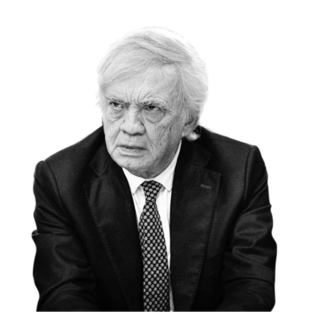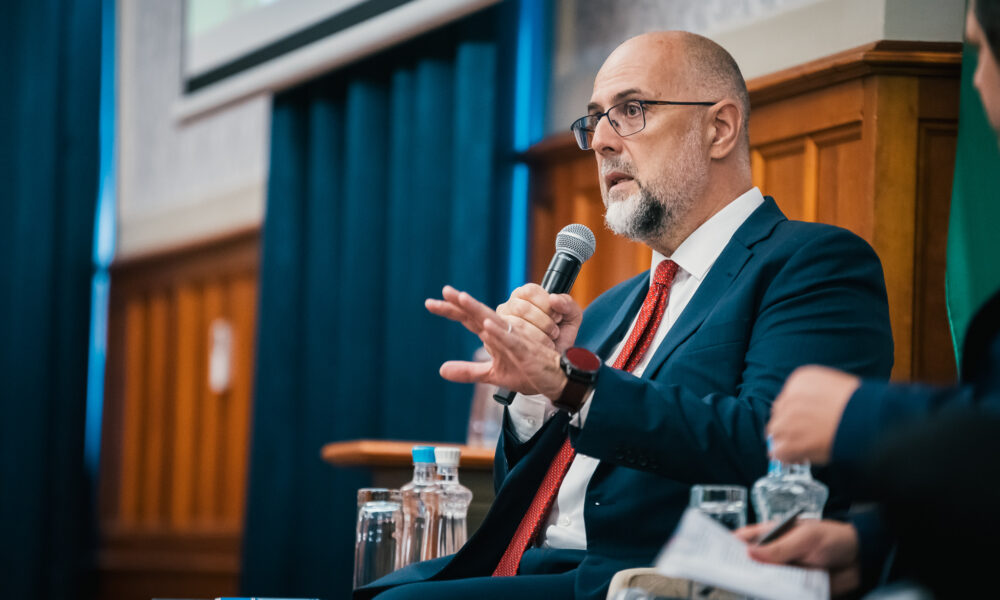Bulgaria is extremely vulnerable to misinformation and influence on elections, according to a report

« The findings of this report should make EU employees be alert: media freedom and pluralism are under attack throughout the EU, and in some cases they are in an existential battle against outright undemocratic governments. »
In Bulgaria, for example, there are challenges to the independence or functioning of the public media (BNR, BNR, BTA), obvious threats against the media regulator, which should be politically independent of power, and the use of state resources for advertising remains problematic – often due to the lack of transparency in their distribution or because of the explicit use of these means of support only the media, friendly, friendly means of support for media, friendly. But beyond these warnings, which have become traditional findings over the years, there are even more worrying conclusions.
Report: Bulgaria is an example of opaque media funding
The authors of the text of Liberties, covering the events of 2024 in 21 of the 27 Member States, added: « In the darkest corners (in Europe), EU legislation to strengthen the freedom of the media was met with hostility, which makes the implementation of the European and then decisive and then decide for the defense of the defense
With Slapp oligarchs and their servants want to dictate what you read, watch and talk
Hungary is often referred to as such a place: « The public media is entirely conquered by the government’s propaganda system. The level of confidence in the media remains low, but it is interesting that it is decreasing even among the voters of the ruling Fidesz Party.
For Bulgaria, perhaps the most anxious conclusion affects the media working on the Internet, which quickly increases its importance as a major place to learn news:
- « There is no stable regulatory framework for the Bulgarian online media ecosystem, which leads to significant gaps in supervision, accountability and sustainability. The current media laws do not look at the unique challenges for online media, with the regulation of online content being particularly insufficient. There are no national provisions or regulating online media content.
- The mechanisms of moderation and elimination of harmful content are weak, and self -regulation efforts have failed due to lack of participation and accountability throughout the sector, such as The country remains extremely vulnerable to malicious misinformation attacks aimed at sowing division or influence the results of the election. By the end of 2024, Bulgaria had not yet appointed a digital service coordinator, as required by the European Digital Services Act (DSA). Existing supervisors have no technical experience, resources and implementation powers to effectively control digital services. «
Social media allow misleading political advertisement
Here are more findings about the Bulgarian media environment:
- In Bulgaria and Slovakia is the lowest for Eastern Europe level of trust to the media
- There is no sufficient safety protection and independence journalists, which makes them vulnerable to threats, harassment and limited access to information.
- There is no centralized violence reporting system There is no institutional response to the attacks against them.
- Strategic lawsuits against public participation (SLAPP) remain a problem filed against media and journalists, although there is some improvement. Only exist limited procedural guarantees for SLAPP victims and a little transparency in the actions of law enforcement. There are no legislative measures to protect media professionals from judicial harassment.
- Resistance or refusal to submit applications for freedom of access to information to public officials. The law has too generally formulated grounds for refusal of requests, there is no effective framework for application, even in cases where the court is obliged to give access to information. Official registers and declarations of property are not easily accessible, which limits journalists’ ability to conduct effective investigations.
- The anti -misinformation mechanisms are ineffectiveand the facts and content verification tools are limited. Anonymous channels and unregulated content aggregators enhance the spread of misinformation and false information. The implementation of the Digital Services Act is still in the early stages, without significant impact on the national regulatory framework.
- For Media and Telecommunication Regulators It is still difficult to protect media pluralism.
As progress for Bulgaria it was noted that last year a working group was set up on SLAPP cases, led by the Deputy Minister of Justice, to bring the Bulgarian legislation in accordance with the EU Directive on this problem. The group includes representatives of the judiciary, academics, civil society, and the Ministry of Justice. Their main focus is on the development of amendments to the Code of Civil Procedure (CCP), but initial discussions show that changes may also cover the Judiciary Act and other relevant laws.
« Revival » unsuccessfully tried to push the law on foreign agents in the only committee that controls
But overall « the reforms needed to bring the country into line with the European Media Freedom Act (EMFA) are blocked. » And their aim is to strengthen the independence of the media regulator, to modernize the regulatory framework and the possibilities for its implementation by the supervisory authorities, to reform the mechanisms of funding, to limit political influence and to guarantee the independence of the public media. «
The National Assembly has a Committee on Culture and the Media, formed in its new staff at the end of January with chairman Toshko Yordanov Hadzhitodorov of « There is such a people ». Among the 15 members there are four other deputy chairmen. One of them, Kostadin Hadjiyski of « greatness », became such a just thing – on April 30, with a reference to it showing that he has experience in the banking system in trade and industrial packaging of goods.

Here is what it says in the Liberties Report of problems in Bulgaria that this committee is expected to be a leader in the legislative activity:
- « The Electronic Media Council (CEM) is an example of this institutional instability. CEM members maintain political connectivity that negatively affects the impartiality of the body and ultimately on the editorial independence of public media. CEM members are appointed directly by parliament and the president, which compromises the independence of the Council. By the end of 2024, the ongoing political instability stopped the legislative reforms necessary to bring Bulgarian legislation to the European Media Freedom Act. Legislative updates are urgently needed to strengthen the CEM’s independence, to modernize the regulatory framework and to improve the possibilities for implementing the law by the supervisory authorities. «
On the occasion of the sector of the three public media (which are perceived in Bulgaria as state -owned, ie must be under the control of one in power), for which the budget allocates tens of millions of BGN each year, the report says:
- “The System of Public Media in Bulgaria has overlapping functions, which leads to inefficient use of resources and duplicate administrative costs. This fragmented system is difficult to compete in the digital media ecosystem. The quality of the content continues to be a problem, including the lack of in -depth investigative journalism, strong editorial positions and quality programs related to public affairs. These problems are complicated by the dependence on the short -term state funding regime, which is open to political influence. This funding remains insufficient for public media to produce quality content, attract and retain talents or invest in new technologies, and the lack of long -term financial planning further limits their ability to adapt and implement innovation. «
One of the conclusions in the report is that freedom of expression and access to information are not fully guaranteed for journalists in all Member States. « This is especially true for independent journalists and those of the media who are critical of the government. The hateful hate speech aimed at journalists in recent years continues, especially on social media. »









